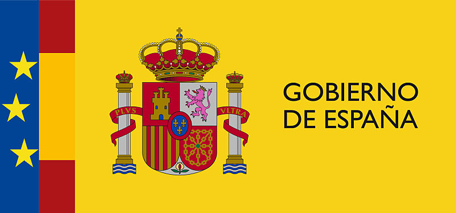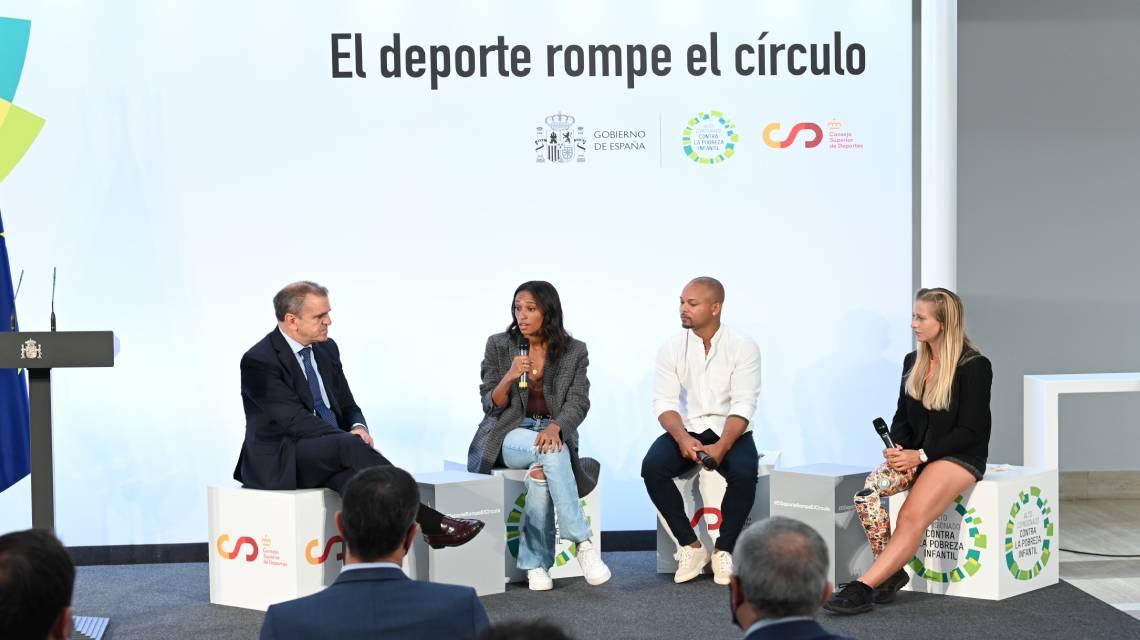The Government aligned to sport in the fight against child poverty
This initiative, which is part of the alliance Country Zero Child Poverty, driven by the high commissioner against child poverty, aims to highlight the situation of children vulnerable in our country and to display the enormous potential of sport to combat child poverty.
Pedro Sánchez has pointed out that the fight against child poverty is a goal of state in which it has a “ importance ” the Minimum Wage, which will permit the drawing of poverty more than 400,000 children and adolescents.
29 september 2021.-The president of the government, Pedro Sánchez has presided today an act with athletes in the Palacio de La Moncloa in which the athlete Ana Peleteiro, Ray Zapata gymnast and athlete paralímpica Desirée Vila have talked about the importance of sport in development and in the transmission of values during childhood.
During the sessionSport breaks the viciousin the Moncloa, organized by the high commissioner against child poverty and the high council of sports, sánchez has underlined the importance of sport to “ address problems of exclusion, sedentarization, obesity and low self-esteem ”. Accordingly, it is part of “ a major objective of state: the fight ambitious and determined manner, we must all share, to reduce child poverty in our country. ”
This collaboration has two basic objectives: on the one hand, to highlight the situation of children vulnerable in our country and make clear to society as a whole the enormous potential of sport to combat child poverty and, in general, any situation of social inequality.
The president of the government has announced that, within the framework of collaboration between the high commissioner against child poverty and the Foundation of Sport, the supreme council for sports, has launched “ an agenda that sponsors sport as a key tool for the welfare and social inclusion ” of girls and vulnerable children.
This programme has begun this academic year in Las Palmas de Gran Canaria on an experimental basis and purpose is to assess their impact once finalized, in order to strengthen it and proceed to its implementation in other municipalities of Spain.
A fair economic recovery to correct inequalities
In his statement, the chief executive has reminded us that, according to the latest standards of living survey, spain has a child poverty rate 27.4 per cent. In other words, affects more than 2 million of our children and adolescents, which is “ a reality absolutely intolerable ”, that the Government has set as a priority since the first time.
In his view, “ there can be no progress if there is cohesion, there can be no economic growth if we are just enlarge social exclusion ” and “ it is imperative that we should pursue a fair economic recovery ” to correct the inequalities, above all, and firstly, affecting children.
In this regard, Pedro Sánchez has pointed out the measures it has been adopted by the government to address these inequalities. Among them, to allocate 200 million euros for the creation of 21,000 new places public education from 0 to 3 years; an increase of fellowships and grants with eur 2 billion to $850,000 beneficiaries; the Minimum Wage, which provides for reaching more than 400,000 children and adolescents; the adoption of the Comprehensive protection of children; the increase in the annual amount of child benefit or child without disabilities, who have benefited 700,000 children; an additional envelope of eur 25 million for the strengthening of the becas-comedor, enabled 148,000 boys and girls to ensure adequate food; the distribution of more than 25,000 SIM cards and digital devices and mobile devices 750,000 pupils at risk of disconnection digital, with the programme “ educate ” in Digital, or Plan MECUIDA for fathers to reduce or reorganize up to 100 per cent of its working time.
The Minimum Wage, the capital in the fight against child poverty
In addition to all these specific measures for children, sánchez emphasized that the government has also acted decisively to combat poverty and exclusion and the national strategy to combat Energy Poverty, which includes social bonus and also the prohibition of the court in case of vulnerability; and, above all, with the adoption of the Minimum Wage, which are now benefiting from 800,000 people and which has become “ capital ” in the fight against child poverty.
Well, he recalled that over 60 per cent of the Minimum Wage are sons and daughters, and, of the total number of recipients of the provision, a 40 per cent are children and adolescents. Another fact is that a 28 per cent of households in receipt of the provision are monomarentales. For this reason, he stressed that the minimum wage is “ a tool to transform, and not merely palliative ” and must be considered a fundamental tenet of the welfare state.



